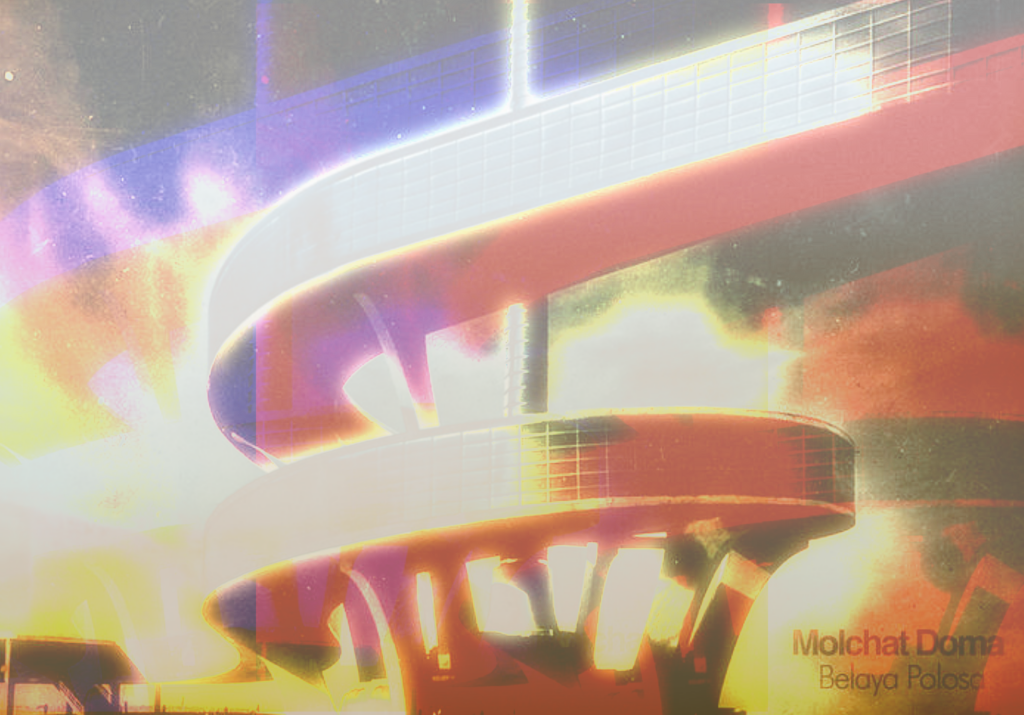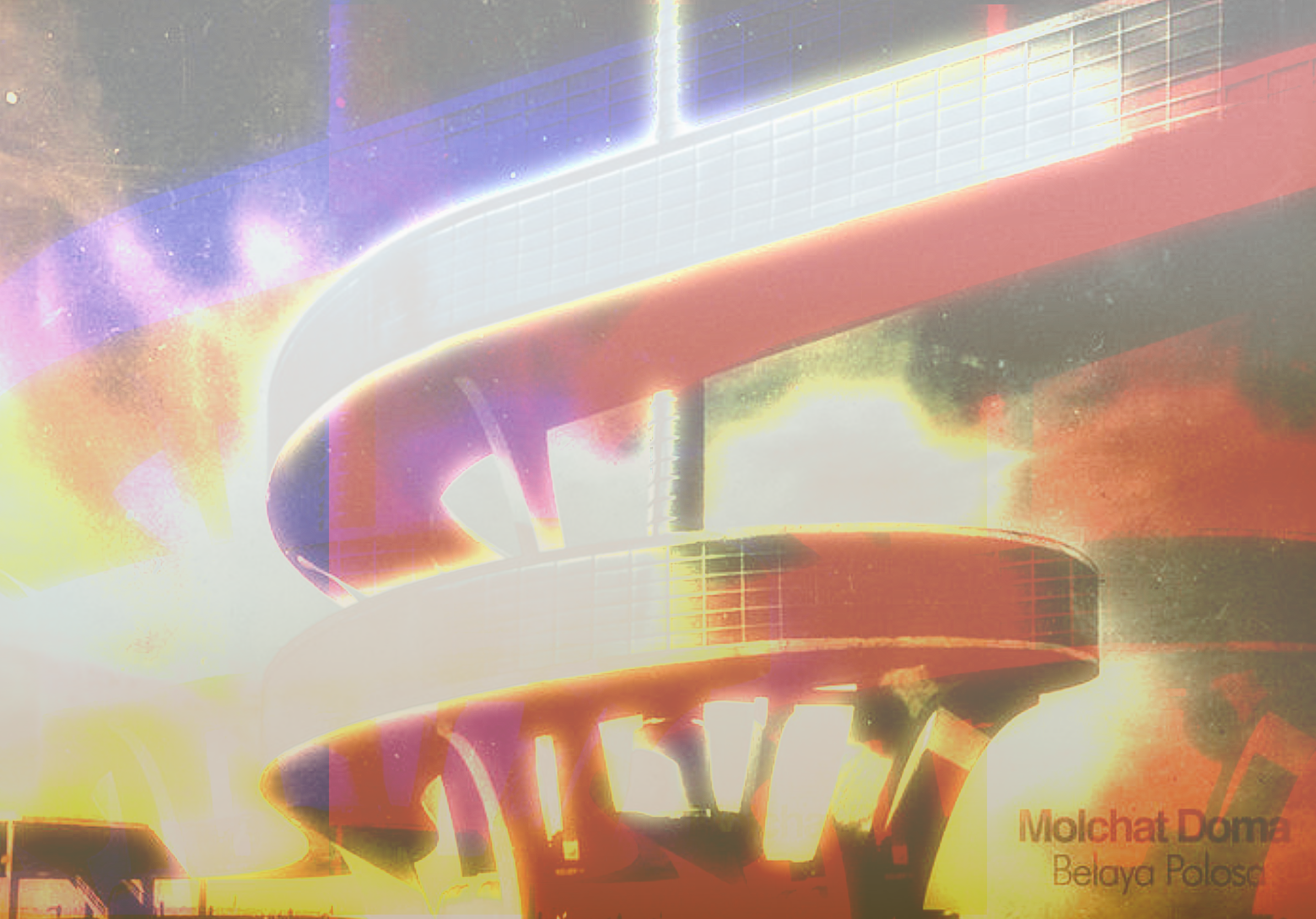If you’ve ever listened to one of those “doomer playlists” on YouTube, then you’ve definitely heard at least something from the Belarusian post-punk band, Molchat Doma. This month, they return once again after four years with their newest album, “Belaya Polosa.”
Consisting of 10 tracks that sum up to 48 minutes, “Belaya Polosa” has a brand new style, compared to Molchat Doma’s previous albums, such as “Monument” and “Etazhi.” These previous albums lean towards a more disco-esque feel, as the band was greatly inspired by the English electronic band, Depeche Mode, and such synth-pop composed much of the songs. However, for “Belaya Polosa,” the band experimented quite a bit — especially with the ambience — which gave the album a much more unique and recognizable twist that stamped the name Molchat Doma all over it.
Like their other albums, the cover of “Belaya Polosa” is a uniquely shaped building in duotone colors. The strangeness of the shape is almost uncanny, adding to the cold, industrial feeling that lurks in society, which is what the band is trying to describe with their music. The colors, orange and black, looked just as if the sun was about to set and the darkness of the night was seeping in. However, though a bit hard to see, there are still people beneath the architecture. The colossal building hovers above, showing how despite the harshness of life, we, as humans, go through it all, adding to the post-punk feelings of the album.
Each track ranged from four to six minutes, a bit longer than songs from other albums, but for a good reason. Even though they all belonged to the synth-pop and post-punk genres, the tracks took their time in setting up the mood and transitions into the lyrical parts (with the exception of “Beznadezhniy Waltz,” which didn’t have lyrics). Some of the tracks were rather ambient and haunting due to the usage of reverbs and electrical guitar notes, such as “Son” and “Ne Vdvoem.” Others were more futuristic-sounding, as if they came straight from retro sci-fi movies, such as “Belaya Polosa” and “III,” a result of the band’s clever usage of synthesizers.
Molchat Doma incorporated short yet effective lyricism to accompany the instrumentals, which unified the overall style of the album. The lyrics, translated into English, featured lines such as “You don’t look at me, you don’t know who I am / You don’t hear me, you can’t imagine me,” “It is too late to do the sign of the cross: we can’t be saved,” and “We will not return / To forget.” The depressing feelings given off by the lyrics surpass the language barrier — even if you didn’t understand Russian, the sense of emptiness would still reach you through the music. This is also what makes Molchat Doma such a classic yet special post-punk band — the cold emotions never leave your side even though the instrumentals sound so vibrant.
Overall, “Belaya Polosa” was yet another beautiful creation by Molchat Doma, following their previous albums. If you’re into the mixture of synth-pop with a side helping of depression, you should definitely try it out.


